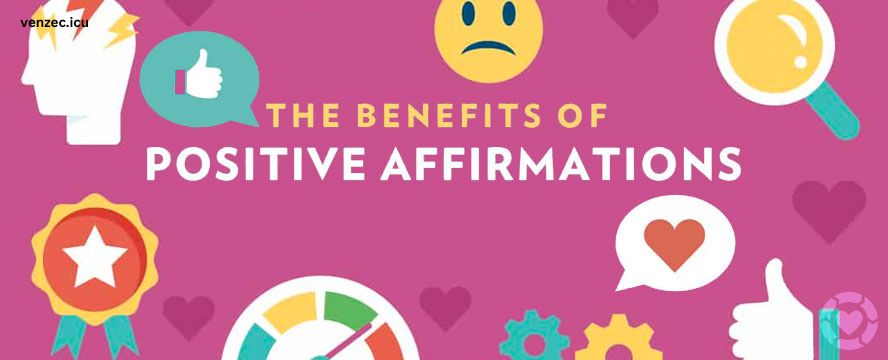Introduction
Positive affirmations have gained immense popularity as a powerful tool for self-improvement, personal growth, and mental well-being. Whether you’re looking to boost confidence, overcome self-doubt, or attract success, positive affirmations can help reshape your mindset. But how do they actually work? In this article, we will explore the science behind positive affirmations, their benefits, and how you can integrate them into your daily routine.
What Are Positive Affirmations?
Positive affirmations are short, powerful statements designed to influence your thoughts and beliefs positively. They are typically phrased in the present tense and focus on self-empowerment, motivation, and goal achievement. Some common examples include:
- “I am confident and capable.”
- “Success flows effortlessly into my life.”
- “I attract positivity and abundance.”
By consistently repeating these affirmations, individuals can reprogram their subconscious mind, replacing negative thoughts with empowering beliefs.
The Science Behind Positive Affirmations
Many people wonder whether positive affirmations actually work or if they are just a placebo. Scientific research suggests that affirmations have a profound impact on our brain and overall well-being. Here’s how:
1. Neuroplasticity and Rewiring the Brain
Our brain has the ability to rewire itself through a process called neuroplasticity. When you repeatedly affirm positive statements, new neural pathways are formed, reinforcing positive thought patterns. Over time, this leads to an improved mindset and behavior.
2. Self-Affirmation Theory
Developed by psychologists Claude Steele and David Sherman, the self-affirmation theory states that individuals can maintain self-integrity by affirming core values and beliefs. This helps reduce stress, enhance motivation, and promote overall psychological well-being.
3. Impact on Stress and Anxiety Reduction
Studies have shown that practicing positive affirmations can lower stress levels, decrease anxiety, and improve emotional resilience. This is because affirmations help counteract negative self-talk, shifting focus towards a more optimistic outlook.
Benefits of Practicing Positive Affirmations

Incorporating positive affirmations into your daily routine can bring several benefits, including:
1. Boosts Self-Confidence
Repeating affirmations such as “I believe in myself” or “I am strong and capable” helps reinforce self-worth and confidence, making you more prepared to take on challenges.
2. Encourages a Positive Mindset
Affirmations help shift focus from negative thinking to a more optimistic perspective, improving overall happiness and satisfaction in life.
3. Enhances Motivation and Productivity
By reinforcing positive beliefs, affirmations fuel motivation, making it easier to stay focused on goals and overcome obstacles.
4. Improves Mental and Physical Well-being
A positive mindset can lead to better mental health, reduced stress levels, and even improved physical health due to the mind-body connection.
5. Attracts Success and Abundance
Practicing affirmations related to success, wealth, and happiness helps align your thoughts with your goals, increasing the likelihood of achieving them.
How to Use Positive Affirmations Effectively
To make the most out of positive affirmations, follow these best practices:
1. Be Specific and Personal
Use affirmations that are relevant to your goals and aspirations. Personalizing them makes them more effective.
2. Use Present Tense
Affirmations should be stated as if they are already true, such as “I am successful” rather than “I will be successful.”
3. Repeat Daily
Consistency is key. Repeat your affirmations multiple times a day, preferably in the morning and before bed.
4. Visualize While Affirming
Pair your affirmations with visualization techniques. Imagine yourself embodying the statement to make it more impactful.
5. Write Them Down
Journaling your affirmations helps reinforce them and serves as a reminder to stay committed to positive thinking.
6. Say Them with Emotion
Affirmations work best when spoken with conviction and belief. Feel the words as you say them.
Examples of Powerful Positive Affirmations
Here are some affirmations you can incorporate into your daily routine:
For Confidence & Self-Esteem:
- “I am worthy of love and success.”
- “I radiate confidence and self-assurance.”
- “I trust myself and my decisions.”
For Success & Abundance:
- “Success flows to me effortlessly.”
- “I am open to limitless possibilities.”
- “Every day, I am getting closer to my goals.”
For Stress & Anxiety Relief:
- “I am calm, centered, and at peace.”
- “I let go of stress and embrace tranquility.”
- “I am in control of my thoughts and emotions.”
For Health & Wellness:
- “My body is strong, healthy, and full of energy.”
- “I make choices that nourish my mind and body.”
- “I am grateful for my health and vitality.”
Common Myths About Positive Affirmations
1. “Affirmations Are Just Wishful Thinking.”
Affirmations are not about wishful thinking; they work by reinforcing positive neural pathways and influencing actions.
2. “They Work Instantly.”
Results take time. Repeating affirmations consistently will gradually reshape your mindset and beliefs.
3. “They Only Work for Some People.”
Anyone can benefit from affirmations when used correctly and consistently.
Final Thoughts
Positive affirmations are a simple yet powerful tool to reprogram your subconscious mind and attract success, confidence, and happiness. By understanding how they work and implementing them effectively, you can transform your mindset and create the life you desire. Start using positive affirmations today and experience the change they bring!
For more self-improvement tips and techniques, visit venzec.icu.










Leave a Reply